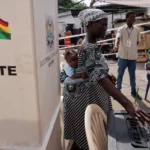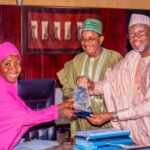By Nick Dazang
Following the enactment of the Electoral Act 2022 (with its sundry salutary provisions), the prompt issuance of the timetable and schedule of activities for the conduct of the 2023 general elections by the Independent National Electoral Commission (INEC) and the fact that we have less than one year to the conduct of the crucially important elections, it is to be expected that issues that directly concern, or are tangential to the electoral process, will continue to dominate the upper reaches of our national discourse.
The aforementioned developments have been made urgent and compelling by the acute challenges that incessantly buffet and adversely affect the electoral process. One of these challenges is that of growing voter apathy or low voter turnout. We have observed, with alarm, over the course of six election cycles, a progressive decline in the turnout of voters on Election Day. Two salient reasons have informed this apathy. First is the initial misgiving by eligible Nigerians that their votes would count. In spite of the remarkable improvements on the processes relating to elections, the indifference has persisted. And this persistence brings me to the second major reason spurring voter apathy: bad governance or the huge gap between the promises politicians make on the hustings and the dismal performance they deliver at the end of their tenures. This deficit has driven a legion of voters to despair and has kept them away from the polls.
- Elections are denial of people’s destiny – Clergy
- Police nab kidnapper, bandits’ food supplier in Niger
The second major challenge is the menace of vote buying and trading which reared their ugly heads again in the recent FCT Area Council Elections. Vote buying and trading constitute a clear and present danger to the integrity of our elections. The brazen manner in which they are perpetrated across the board makes nonsense of INEC’s concerted efforts and avowed commitment to provide a level playing field for all contenders. It also makes a huge mockery of the electoral process. For apart from undermining the sanctity of our elections, it means political office can be bought and sold to the highest bidder.
The third major challenge is inadequate information and education about the electoral process. Even though it is INEC’s statutory duty to conduct voter and civic education and to promote knowledge of sound democratic processes and even though resources are usually appropriated for the commission and it gets support from Development Partners to conduct voter education and publicity, these resources are often inadequate. Matters are not helped by the fact that the pre-eminent stakeholder and chief beneficiary in the process, namely, the political parties, seldom invest their resources in voter education. When you add to this unhappy state of affairs the fact that we are dealing with an electorate that is largely illiterate and beleaguered by massive poverty, the task of voter education becomes arduous.
The task of voter education becomes even more arduous when you consider the many activities and innovations introduced by the Commission and which need to be lucidly explained to voters.
To augment and reinforce its voter education, which calls for proficient and professional coaching of messages and their strategic placement, the commission has had to find recourse in collaborating with other critical stakeholders, particularly the media, civil society, people with disability, youth and women groups, musicians and actors etc. This collaboration has been a win-win, with INEC leveraging on the extensive goodwill, talents and the ubiquitous reach of these stakeholders.
As we move steadily, but surely, towards the 2023 general elections, the Commission and its critical stakeholders must up their game and sustain the momentum that came with the Electoral Act 2022 in the voter education and publicity arenas. I say this informed by the deep disappointment Nigerians feel about the political class.
It is good tidings that the Electoral Act 2022 has strengthened the Commission and imbued the electoral process with even more transparent measures to ensure that the votes of Nigerians will ultimately count. But these will certainly not suffice. The commission and other stakeholders need to rekindle and restore the confidence of Nigerians in the electoral process. One of the ways to do that is to engender a remarkable improvement in the conduct of the off season governorship elections in Ekiti and Osun states scheduled in June and July. Once Nigerians behold a remarkable improvement in our elections and have sufficient proof that the new technologies/innovations introduced by the Commission are working seamlessly, the task of marketing the 2023 general elections will become easier.
Where INEC’s remit stops, which is the conduct of free, fair and transparent elections, civil society and the media must take over. For, whereas INEC can entreat Nigerians to “vote wisely” and to vote for credible candidates, it cannot set criteria for or recommend candidates, even if they were paragons. In view of our sordid experience, the media and civil society, apart from serving as purveyors of electoral information, should be able to: set criteria for the type of candidates we need at all levels; set agenda on leadership; subject candidates to scrutiny; and provide the platforms for the candidates to robustly debate so that, arising from their arguments and deportment, the voter can make wise and informed choices.
Nick Dazang is a former Director, Media and Public Enlightenment, INEC

 Join Daily Trust WhatsApp Community For Quick Access To News and Happenings Around You.
Join Daily Trust WhatsApp Community For Quick Access To News and Happenings Around You.


